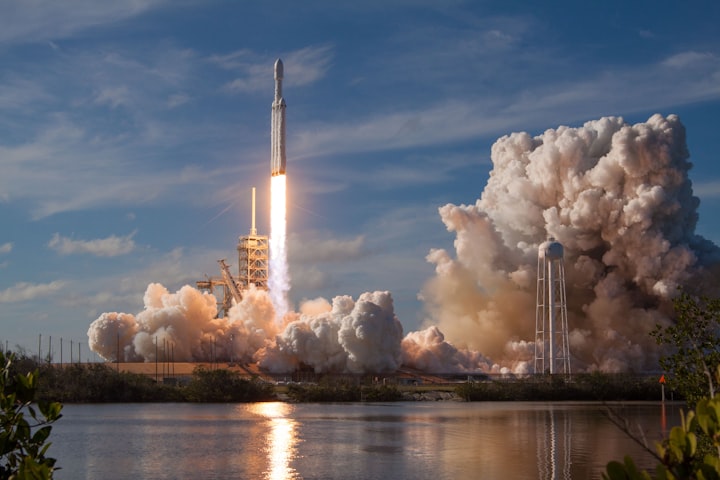Falcon 9 is a two-stage rocket developed and manufactured by SpaceX, a private space exploration company founded by Elon Musk. It is named after the Millennium Falcon starship from the Star Wars franchise.
The Falcon 9 rocket is designed to be reusable, which makes it a more cost-effective and efficient way to launch payloads into space. The first stage of the rocket is designed to return to Earth after launch and land vertically on a drone ship or landing pad. The second stage then continues on to deliver the payload into orbit.
Falcon 9 has been used for a variety of missions, including launching satellites, resupplying the International Space Station, and sending astronauts to space. In May 2020, Falcon 9 became the first privately developed spacecraft to send astronauts to the ISS as part of the NASA Commercial Crew Program
Overall, Falcon 9 has been a significant innovation in the space industry, allowing for more frequent and cost-effective access to space.
There are many people who have contributed to the development and success of the Falcon 9 rocket, including engineers, designers, and executives at SpaceX. Here are a few key individuals who have played a significant role in the development of the Falcon 9 rocket:
Elon Musk: Musk is the founder and CEO of SpaceX, and he has been instrumental in the development of the Falcon 9 rocket. He has been involved in every aspect of the rocket's design, from its engines to its reusability.
Tom Mueller: Mueller is a rocket propulsion engineer who joined SpaceX in 2002 and led the development of the Merlin engines that power the Falcon 9 rocket.
Gwynne Shotwell: Shotwell is the president and chief operating officer of SpaceX, and she has played a key role in the commercialization of the Falcon 9 rocket. She has overseen the growth of SpaceX's launch services business and helped to establish the company as a major player in the space industry.
Hans Koenigsmann: Koenigsmann is the vice president of build and flight reliability at SpaceX, and he has played a key role in the development of the Falcon 9 rocket. He oversees the company's quality control processes and ensures that all launches are safe and reliable.
Tim Buzza: Buzza is a former vice president of launch operations at SpaceX, and he played a key role in the development of the Falcon 9 rocket. He oversaw the design and construction of SpaceX's launch facilities and helped to establish the company's launch operations capabilities.
These are just a few of the many individuals who have contributed to the development and success of the Falcon 9 rocket. The rocket's success is a testament to the hard work and dedication of the entire SpaceX team.
Here are some of the key features and specifications of the Falcon 9 rocket:
Two-stage design: Falcon 9 is a two-stage rocket, which means it has two separate sections that are designed to separate during flight. The first stage provides the initial thrust to lift the rocket off the ground, while the second stage continues the journey to orbit.
Reusability: One of the most important features of Falcon 9 is its ability to be reused. The first stage of the rocket is designed to return to Earth after launch and land vertically on a drone ship or landing pad. This makes the rocket more cost-effective and efficient for future launches.
Merlin engines: Falcon 9 is powered by nine Merlin engines, which use liquid oxygen and rocket-grade kerosene as fuel. The engines are clustered together in the first stage to provide the necessary thrust for liftoff.
Payload capacity: Falcon 9 has a maximum payload capacity of approximately 22,800 kilograms (50,265 pounds) to low Earth orbit and 8,300 kilograms (18,300 pounds) to geostationary transfer orbit.
Autonomous flight: Falcon 9 is equipped with an autonomous flight safety system, which allows it to self-destruct in case of a malfunction or other emergency.
Fairing recovery: The rocket's payload is protected during launch by a fairing, which separates from the rocket once it reaches a certain altitude. In some cases, SpaceX has been able to recover and reuse the fairing.
Overall, Falcon 9 is a highly advanced and innovative rocket that has revolutionized the space industry with its reusability and efficiency.
The cost of a Falcon 9 launch varies depending on several factors, such as the specific mission requirements, the size and weight of the payload, and the launch site. However, SpaceX has stated that the starting price for a Falcon 9 launch is around $62 million.
It's worth noting that this cost is significantly lower than the cost of traditional rocket launches, which can range from $100 million to several hundred million dollars. The reusability of Falcon 9's first stage is a key factor in lowering launch costs, as it allows SpaceX to refurbish and reuse the rocket for future launches.
In addition to the base launch cost, customers may also incur additional expenses for things like payload integration, mission management, and insurance. SpaceX also offers various upgrades and customization options for Falcon 9 launches, which can add to the overall cost.
Overall, Falcon 9's relatively low cost and high reliability have made it a popular choice for a wide range of customers, from commercial satellite operators to government agencies to space tourism companies.
About the Creator
sanjeevan
I'm a blogger and knowledge about blogging is a valuable asset in today's digital world. Blogging is a powerful way to share your voice and expertise, build a following, and establish yourself as a thought leader in industry.






Comments
There are no comments for this story
Be the first to respond and start the conversation.